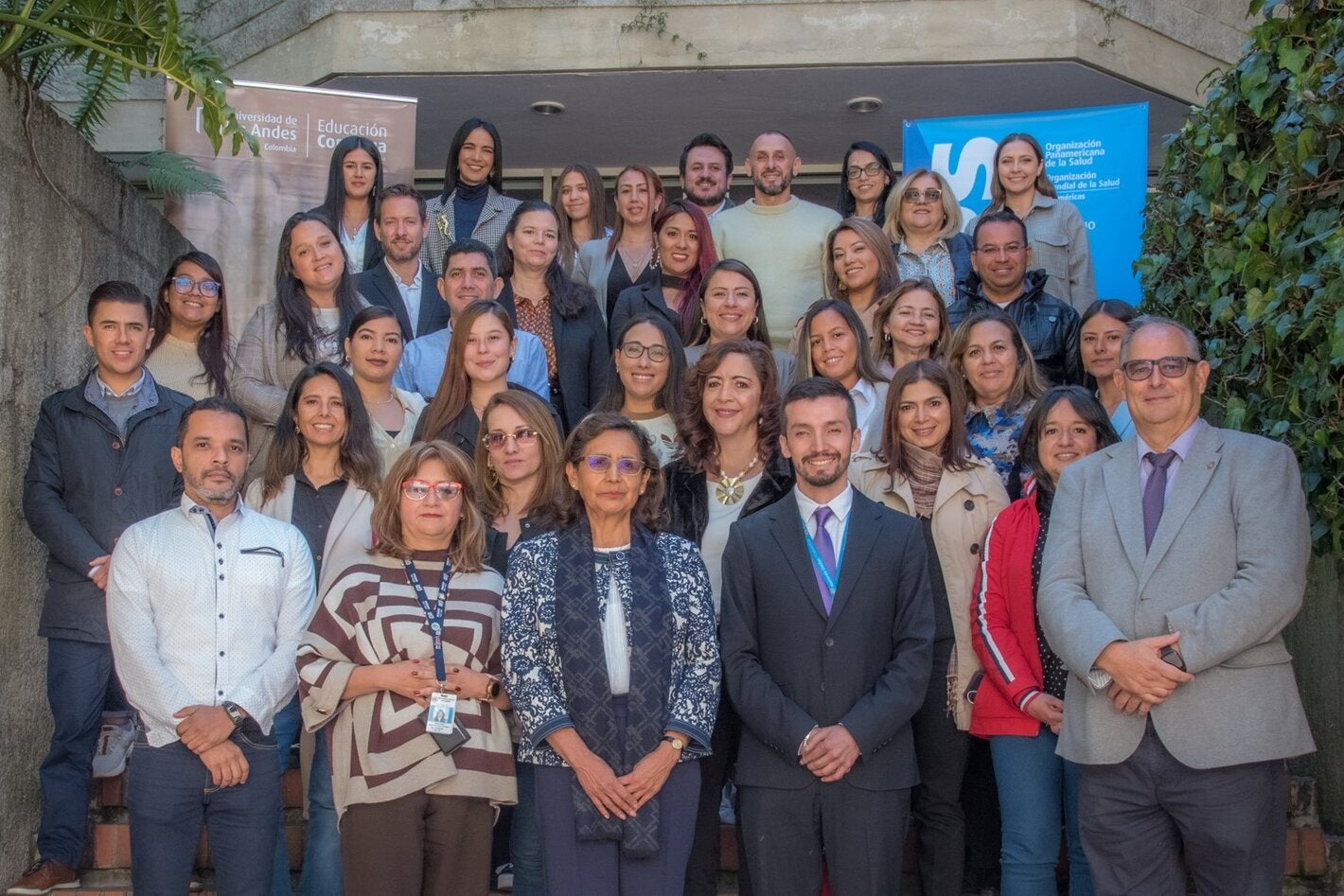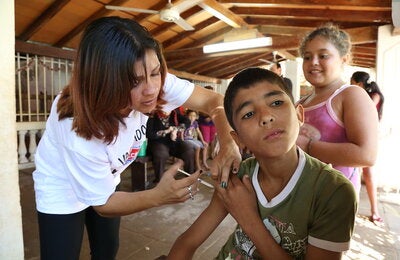
Bogotá, Colombia, 28 January 2023 (OPS/OMS)- A course developed by the World Health Organization (WHO) and the Pan American Health Organization (PAHO), in collaboration with the Universidad de Los Andes, in Bogota, Colombia, was held from 17-28 January to teach journalists and communicators about how to approach the issue of non-communicable diseases (NCDs) from a solutions journalism perspective.
While the vast majority of NCDs, such as cancer, diabetes, heart disease and respiratory diseases, are preventable, they are responsible for 8 out of 10 deaths in the Americas region. However, as they are chronic, leading to disability and healthy years lost rather than immediate death, they rarely make headlines.
“Informing the population about NCDs in a clear and timely manner helps to protect lives and prevent disease,” Dr. Gina Tambini Gomez, PAHO/WHO Representative in Colombia said. “We want to achieve an optimal level of health for the entire Colombian population and we know that working with journalists and communicators will enable us to promote preventative actions,” she added.
Over 30 journalists from major media outlets in the country participated in the 40-hour course, which was conducted virtually and in-person. During the course, they received the latest available information on NCDs, their causes, and the proven measures to be taken to address them.
During the course, the journalists also analyzed the main challenges in reporting on NCDs, delved into story development and visualization, and learned about solutions journalism, a professional exercise that focuses not only on reporting on a problem, but also on the measures that can be taken to solve it.
WHO specialists also presented journalists with the first public opinion survey on NCDs, which was conducted in six countries around the world, including Colombia. The Gallup survey, for WHO and Bloomberg Philanthropies, inquired into how people perceive various NCDs and what steps they take to mitigate them.
The results of the survey revealed that perceptions around NCDs do not correspond to reality. Those surveyed in Colombia thought that cancer is the most common chronic disease, when it is actually cardiovascular disease. The perception of risk posed by NCDs was also seen as low, with 53% of respondents in Colombia saying that they did not consider NCDs to be very harmful, particularly diabetes and chronic lung diseases.
During the training, risk factors for NCDs, including obesity, hypertension, unhealthy diet, and physical activity, were also addressed, as were measures to prevent NCDs, such as tobacco taxation, front-of-package labeling on foods, HPV vaccination, healthy schools, and multisectoral action to address causes beyond the health sector.
Participants also visited the National Cancer Institute (INC), where they heard first-hand, about the situation of cancer in the country, and were able to tour an entity which is one of the regional reference centers in the prevention and treatment of cancer.
The course is the second of its kind organized by PAHO/WHO in the Americas. The first was held last December in Washington, D.C., in collaboration with Northwestern University’s Medill School of Journalism.



